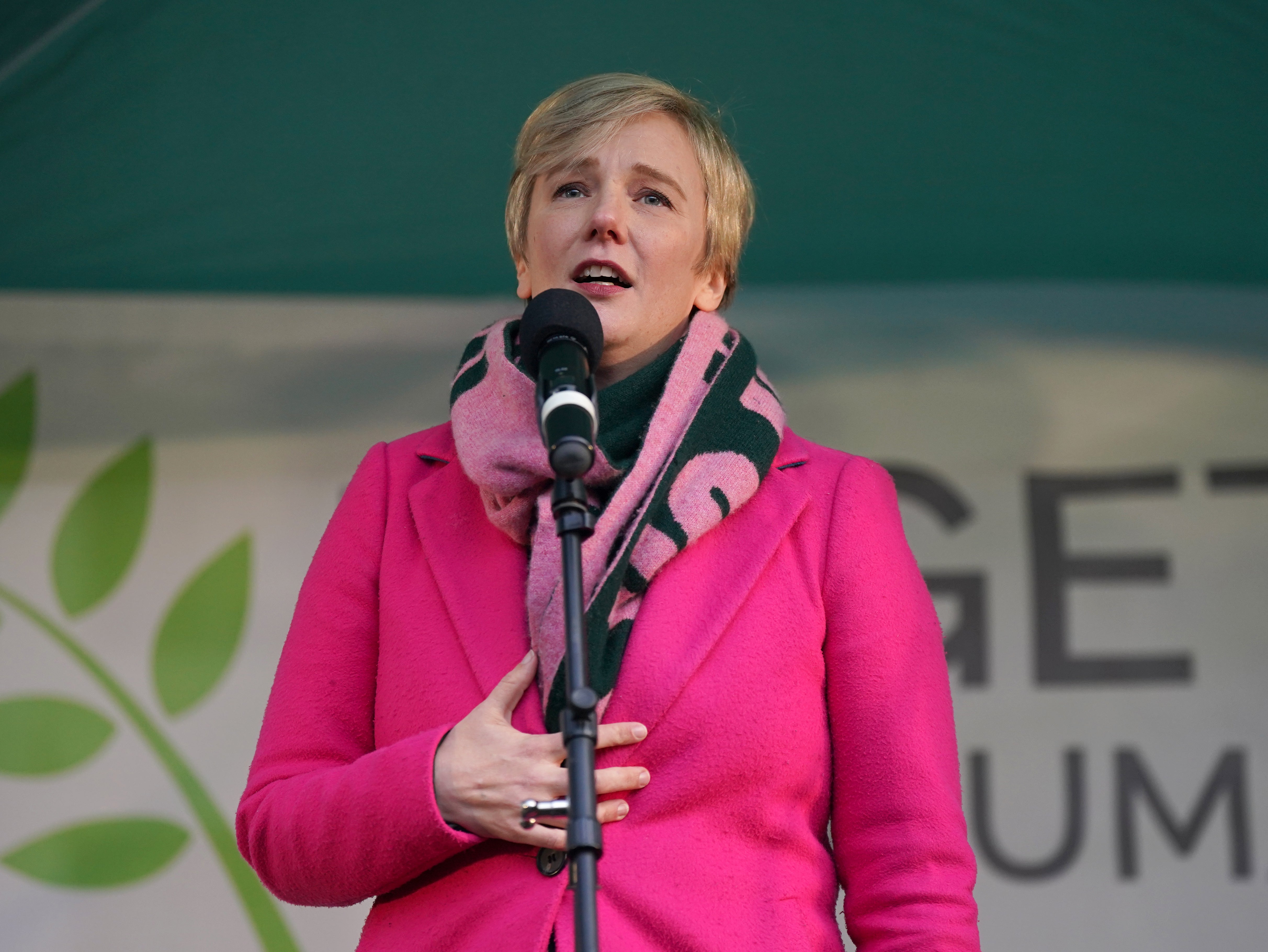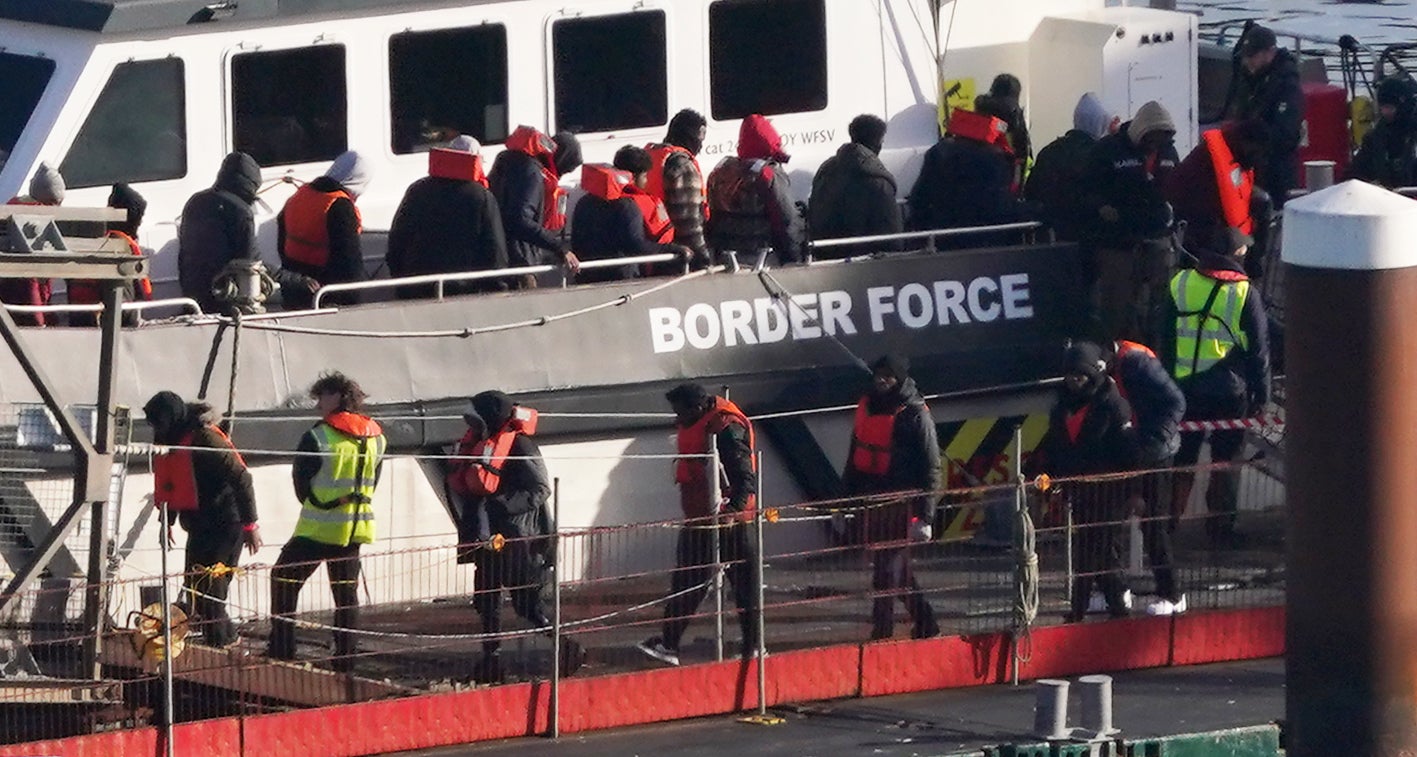A new government crackdown on refugees travelling to the UK by small boat is so harsh it would mean turning away Paddington Bear, a Labour MP has said.
The Home Office has toughened up existing guidance on Wednesday to make it nearly impossible for refugees to become British citizens if they travel to the UK by small boat.
Under the previous guidance, refugees who arrived in the UK by irregular routes must wait ten years before being considered for citizenship. Now, new guidance issued by home secretary Yvette Cooper says applicants who have “made a dangerous journey will normally be refused citizenship”.
The move was fiercely criticised by Labour MP Stella Creasy who said it flew in the face of Britain’s tradition of letting those who seek refuge in the UK become “part of the community.”
In a striking way of emphasising her point, she said it would effectively have meant refusing to let Paddington Bear stay.
“Frankly, this process would deny Paddington Bear - he did the same thing, he came by an irregular route but we gave him sanctuary,” the Walthamstow MP said.
In the 1958 children’s story, Paddington arrives as a stowaway from “Darkest Peru”, sent by his Aunt Lucy, one of only handful of relatives apart from an uncle who has gone to live in a “home for retired bears.”
After being found at London’s Paddington Station, the bear says: ‘I came in a lifeboat and ate marmalade. Bears like marmalade.’ The bear becomes a much loved part of his local community.
Paddington author Michael Bond said he was inspired by Jewish children arriving in Britain after fleeing Nazi persecution in WW2.

Ms Creasy said the new Home Office measure would also stop Afghan interpreters, who helped the UK and US fight the Taliban in Afghanistan, but who were forced to flee when the Taliban took back control, from becoming British citizens.
She said the Government’s message to migrants was, effectively: “We will let you stay in the country but we will not expect you to be part of the community.”
The Labour MP added such an attitude “is not where the British public is at.”
“It is counter productive to the message we want to send about being proud of our country and the role it has played in supporting those fleeing persecution.
“If you come here and we give you refuge there should be a route for you to become part of our country.”
The Refugee Council estimates the update will prevent over 70,000 refugees from obtaining British citizenship.
In a statement, the Home Office said the strengthened measures made it clear that anyone who entered the UK illegally would face having a British citizenship application refused.
Described as a “clarification” to case worker guidance when assessing if a claimant is of "good character”, it says: “Any person applying for citizenship from 10 February 2025, who previously entered the UK illegally will normally be refused, regardless of the time that has passed since the illegal entry took place.”

Ms Creasy said the change “meant refugees would forever remain second class citizens.”
The former Labour frontbencher said the move was particularly unfair to Afghan interpreters, including some in her constituency, who had come to Britain in small boats after fleeing the Taliban.
“They had come via that irregular route because the previous (Conservative) government fundamentally failed to take them to safety,” she said.
“They made a life here, but this change means it is unlikely they will ever be able to get citizenship which is an important element of the message about integration that we send.”
Ms Creasy has urged the government to reconsider the policy.
A Home Office spokesperson said: “There are already rules that can prevent those arriving illegally from gaining citizenship.
“This guidance further strengthens measures to make it clear that anyone who enters the UK illegally, including small boat arrivals, faces having a British citizenship application refused.”







